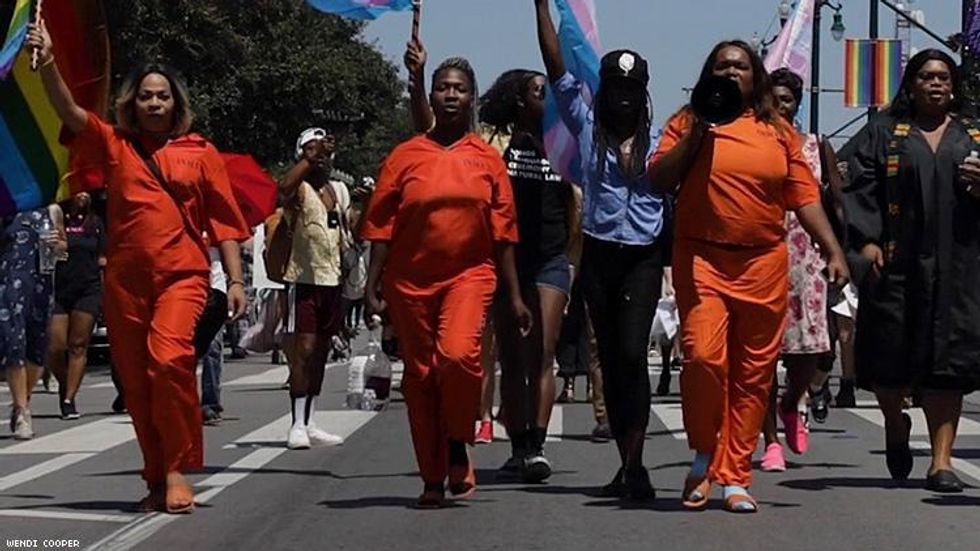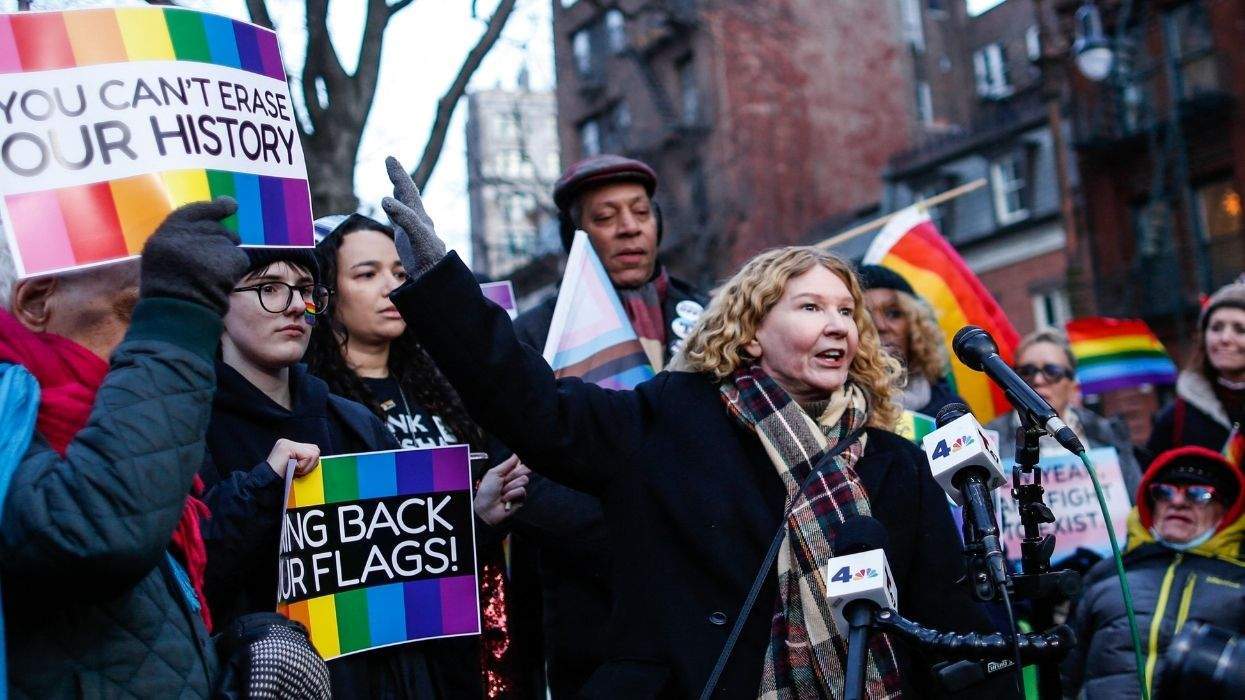While revelers descended on New Orleans for the city's annual Southern Decadence festival, a group of LGBTQ+ activists took to the streets on Saturday for a reason other than daytime drinking.
Around 100 people dressed as police officers, politicians, and preachers to march against the state of Louisiana's 214-year-old law banning "unnatural carnal copulation by a human being with another of the same sex." Also referred to as the Crimes Against Nature (CANS) law, anyone found in violation of the law faces a fine of up to $2,000, as well as a maximum of five years in prison. As originally written, the sentence could also include hard labor.
While the Supreme Court struck down all laws criminalizing same-sex intercourse in the 2005 ruling Lawrence v. Texas, opponents say the anti-sodomy law has continued to be used to punish sex workers, particularly trans women of color.
Wendi Cooper, who organized the demonstration, was forced to register as a sex offender under the CANS law for engaging in sex work. At the time, those convicted under the statute were required to list the words "sex offender" on their driver's license. In the event of a hurricane, they had to take refuge in a shelter where they would be segregated with other sex offenders.
Although the law was revised in 2012 and more than 700 people were removed from the sex offender registry, Cooper says that's not enough.
"We want to get the CANS law eradicated instead of revised," Cooper, who serves as program director of the community advocacy group Operation Restoration, tells Out. "Women of my experience -- LGBTQ+ people who have experienced this archaic law -- need to have a sense of reentering society by being able to get employed, get housing, get the things they need without this law hindering us from doing so."
What has remained the same, however, is that individuals prosecuted under the anti-solicitation provisions of the CANS law face a potential felony conviction, as well as elongated prison sentences.
Speakers at Saturday's march said the time to wipe the statute off the books is long overdue. Karen Collins, CEO of Louisiana Community Care, claimed the provision is an "ugly smear" that burdens sex workers with extreme "financial and social obstacles," while community organizer Kineen Mafa added that it paints "vulnerable and historically disenfranchised populations as 'crimes against nature.'"
"[Louisiana politicians] have shamed impoverished Black trans women and other traditionally marginalized communities," Mafa told attendees. "But we have endured their tyranny all for this moment -- to proclaim that CANS can't stand."
Although the CANS law has been rewritten several times in the two centuries since it was originally enacted, conservatives have been extremely resistant to erasing the legislation altogether. When the Louisiana State Legislature debated an anti-bestiality bill last year, right-wing groups opposed the bill fearing that it would water down the state's technically defunct anti-sodomy statutes.
"We are compelled to caution and committed to defending our faith," Gene Mills, executive director of the Louisiana Family Forum, said in a note sent to lawmakers in April 2018. He claimed the laws uphold "community standards of morality."
The legislation eventually failed.
And even despite the Supreme Court's landmark ruling decriminalizing sodomy across the U.S., law enforcement agents in Louisiana have been known to use the CANS law to target gay and bisexual men. Twelve men were reportedly arrested under the statute in the East Baton Rouge Parish six years ago, although all charges against them were later thrown out of court.
Activists said they would continue to highlight the abuses of the CANS law until it is struck down. By having the event during one of the largest LGBTQ+ Pride festivals in the country, they hoped the rest of the community would join them in calling for justice.
"We thought it was best to have this rally on Southern Decadence weekend ... to show that these are the issues we as black trans women are dealing with," Cooper says. "Yes, we can celebrate Pride, but we also have to talk about the work that's left to do. We want to show white LGBTQ+ folks that black LGBTQ+ folks are being criminalized under CANS for doing some of the same things that white LGBTQ+ folks are doing."
Nearly a dozen states in the U.S. still have anti-gay sodomy laws on the books, including Mississippi, Oklahoma, South Carolina, Texas, and Utah.
RELATED | What Male Sex Workers Have to Say About Their Industry
































